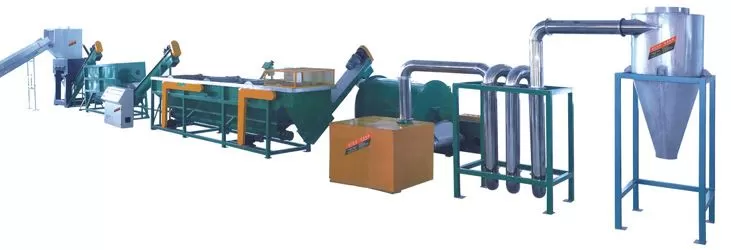As the CEO of Amige, a leading manufacturer of plastic recycling machinery, I am deeply concerned about the environmental challenges posed by plastic pollution. In this blog post, I will explore the current situation of environmental pollution in Korea and the achievements in plastic recycling that have been made in recent years.

The Current Environmental Situation in Korea
Korea, like many other countries, is facing significant challenges due to environmental pollution, particularly from plastics. Single-use plastics, in particular, have become a major source of pollution, leading to issues such as marine litter, land pollution, and harm to wildlife. The Korean government has recognized the severity of the problem and has been taking steps to address it through legislation and public awareness campaigns.
Achievements in Plastic Recycling
Despite the challenges, Korea has made significant achievements in plastic recycling. The country has implemented a comprehensive recycling system that covers various types of plastics, including PET, HDPE, and PVC. Through advanced sorting and recycling technologies, Korea has been able to achieve high recycling rates for plastic waste, significantly reducing the amount of plastic sent to landfills or incineration facilities.
Government Initiatives
The Korean government has been actively promoting plastic recycling through various initiatives. These include the establishment of recycling infrastructure, such as collection and sorting facilities, as well as the implementation of extended producer responsibility (EPR) schemes, which require producers to take responsibility for the recycling of their products. These efforts have helped increase the recycling rate of plastic waste in Korea and reduce its environmental impact.
Challenges and Opportunities
Despite the progress made, Korea still faces challenges in plastic recycling. One of the main challenges is the lack of public awareness and participation in recycling programs. Many Koreans are still not fully aware of the importance of recycling or the proper ways to dispose of their plastic waste. This highlights the need for more education and outreach efforts to increase recycling rates further.
Future Outlook
Looking ahead, there are several opportunities for Korea to further improve its plastic recycling efforts. This includes investing in more advanced recycling technologies, expanding the coverage of recycling programs to include more types of plastics, and increasing public awareness and participation. By taking these steps, Korea can continue to make progress in reducing plastic pollution and building a more sustainable future.
Conclusion
In conclusion, the current situation of environmental pollution in Korea is concerning, but there have been significant achievements in plastic recycling. By building on these achievements and addressing the remaining challenges, Korea can continue to lead the way in plastic recycling and contribute to a cleaner and healthier environment for future generations.
